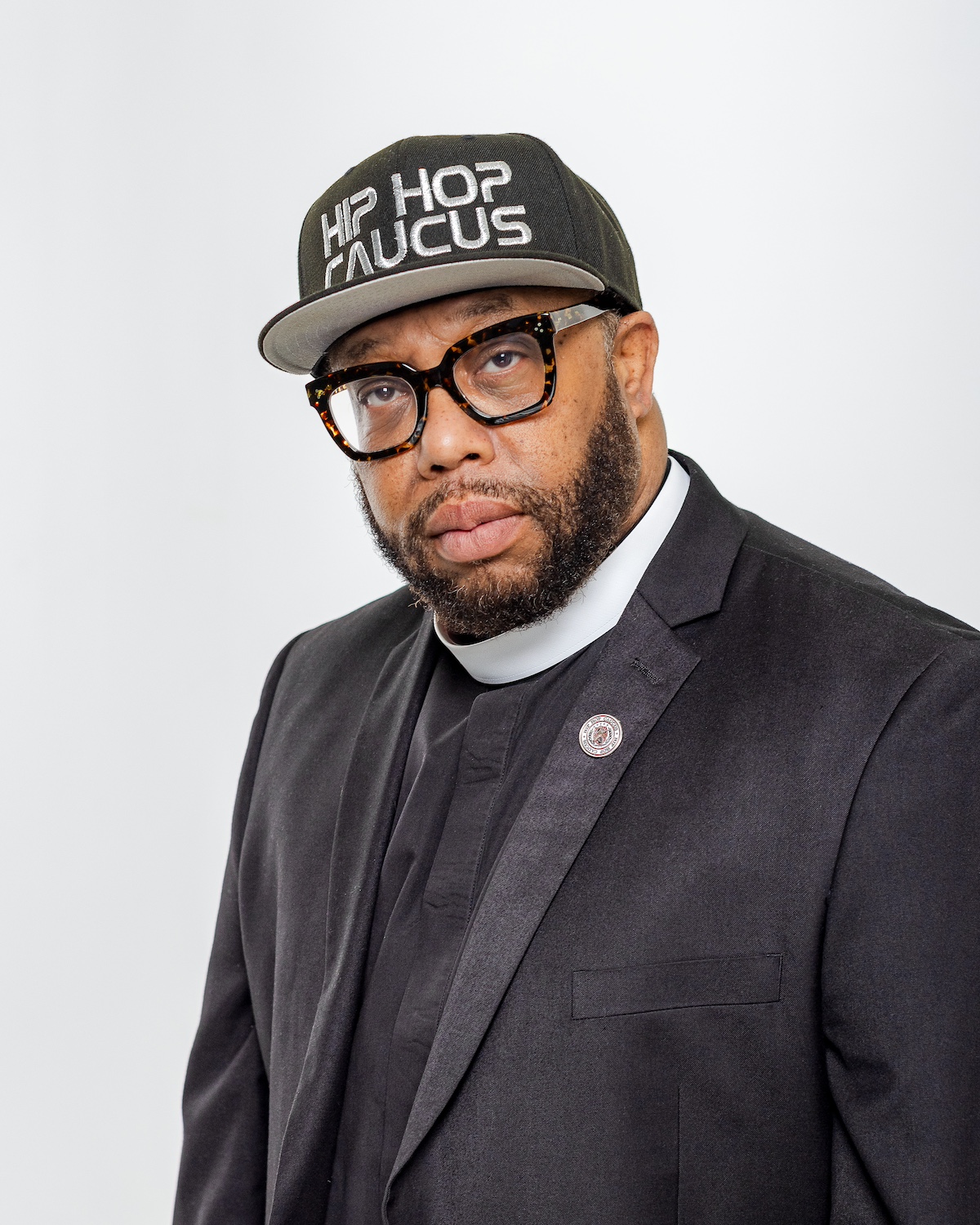
At Hip Hop Caucus' 20th anniversary celebration in September 2024, Howard University students hold a sign for its Respect My Vote! Campaign, which focuses on using voting to address problems that plague communities of color. (Image courtesy of Hip Hop Caucus.)
Facts and figures alone often aren’t enough to drive change, but stories can bridge the gap between data and engagement. Hip Hop Caucus is building on the tradition of artists using storytelling to do just that. The nonpartisan advocacy nonprofit is building community and promoting activism by lifting up the voices of those who are most affected by pollution and the devastation caused by the climate crisis.
Storytelling encourages understanding
“The first step is to engage your own community. The second thing is never give up,” Reverend Lennox Yearwood Jr., the president and CEO of Hip Hop Caucus, told TriplePundit. “What we do at Hip Hop Caucus really well is storytelling — to continue to use media and public relations, create documentaries, create stories that can help people to understand what you’re going into, so you’re not in a silo within your community.”
It’s gone so well that the organization has the support of celebrities like Wanda Sykes, who narrated its documentary “Underwater Projects.” The short film tells the story of how the climate crisis impacts the people of Norfolk, Virginia, and tackles the intersection of climate disasters and marginalization.
“That is actually a big benefit, having someone lend their platform,” Yearwood said of Syke’s role in the project. “Obviously, she is very funny … and she’s also from that area.” Both of which were a huge boon for the film’s success.

Old-fashioned methods are still very much relevant
Building on a basis of storytelling, the Hip Hop Caucus focuses heavily on organizing, educating, and getting people out to vote. Yearwood cites community outreach — including going out to churches, mosques and synagogues — as an important part of building awareness.
“There are results that come out of [voting], so there’s no giving up on democracy,” he said. “We deal a lot of the time with vulnerable communities that do not see themselves as a part of the process, so they’ve checked out.”
But voting also helps people feel like a part of their communities, especially those who are returning from incarceration, Yearwood said. Voting needs to be a habit, he said — noting the importance of fighting back against voter suppression, specifically as it relates to misinformation. While federal elections are important, people also need to be interested in yearly, local elections.
“Sometimes the most important elections are your school board, are your city council, are your mayor, are your judges,” he said. “Those are the ones you’re going to actually engage on a more daily basis than you are the president of the United States or even your senator.”
Raising voices across political divides
Climate activism will likely face even bigger hurdles during the second Trump administration. But that isn’t stopping the Hip Hop Caucus from doubling down on doing the right thing for communities facing pollution and climate disasters.
“Communities of color and frontline communities definitely have to fight regardless — they have no choice,” Yearwood said. “The reality is that their community is suffering because of many health disparities: cancer, emphysema, asthma and so forth.”
As a nonpartisan organization, Yearwood sees Hip Hop Caucus’ work as separate from democratic and republican designations. In fact, he has witnessed substantial success in raising community voices and holding government officials accountable in red states like Texas and Louisiana. Likewise, the organization has fought for environmental justice across racial divides, such as with majority-Black populations in East Houston, Texas, and majority-white populations in East Palestine, Ohio.
“We’re there fighting because we feel that everyone should live a long life. Nobody’s life should be shortened because of pollution,” he said. “So we will continue to do more documentaries and more storytelling.”
Storytelling is worth the time investment
One of Hip Hop Caucus’ most notable successes was in partnership with the faith-based environmental justice organization Rise St. James and the local community, which stopped Formosa Plastics from putting a manufacturing facility in St. James Parish, Louisiana. The area is a part of Cancer Alley, as the communities along 85 miles of the Mississippi River are known. Residents there experience excessively elevated rates of cancer due to around 200 pollution-heavy petrochemical and fossil fuel facilities that spew carcinogens into the local environment.
Rather than standing alone, storytelling is a part of broader activism in achieving such goals. But that’s not to say it doesn’t come with limitations. Storytelling is a time-intensive process. Not only does it take time to produce the content, it takes time to get it out to the people, Yearwood said. Yet, it’s integral to fostering support and engagement.
“Production is the new demonstration,” he said. “In this new age of artificial intelligence and social media, how we’re consuming news and how fast we consume news, I do think storytelling is the way.”

Riya Anne Polcastro is an author, photographer and adventurer based out of Baja California Sur, México. She enjoys writing just about anything, from gritty fiction to business and environmental issues. She is especially interested in how sustainability can be harnessed to encourage economic and environmental equity between the Global South and North. One day she hopes to travel the world with nothing but a backpack and her trusty laptop.














